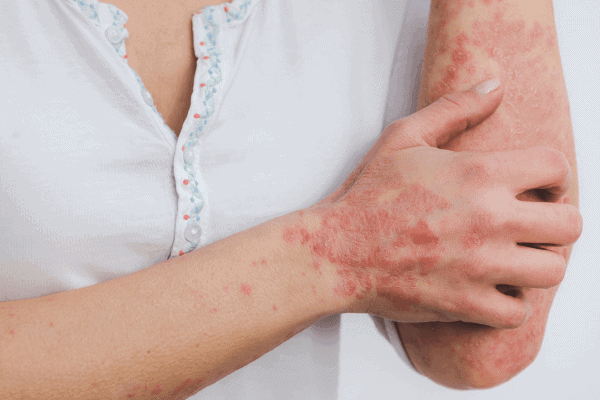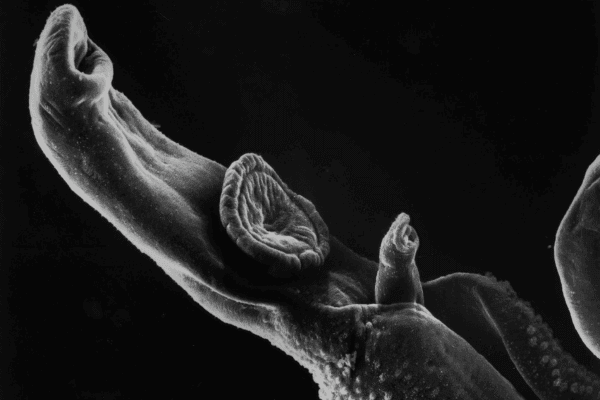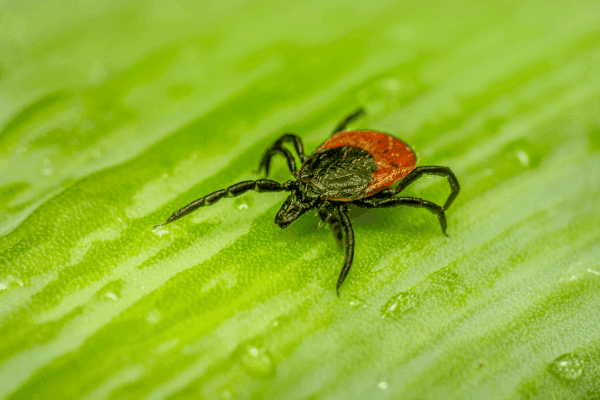The very mention of parasites can often send shivers down one’s spine. However, the truth is that we all have them and they are an essential part of our internal ecosystem. It is only when our microbial terrain becomes unbalanced, due to a wide variety of factors, that they can become problematic. Many researchers and clinicians have shown that a toxic body actually welcomes pathogens, as some parasites have been known to reduce pollutant levels in the tissues of their host. Parasites may act as sponges in the gut, meaning they can absorb many times their weight in heavy metals and toxins, thus protecting their host from these substances.
In fact, copper toxicity is a condition that I commonly see in my clinic, along with copper deficiency. When copper and ceruloplasmin, a copper-binding protein, are low, it is important to consider the possibility of parasites and other organisms that can impact the body’s ability to metabolize harmful heavy metals. Again, it is an ecosystem we must balance.
Parasites are highly intelligent organisms with complex skill sets that are far more advanced than previously believed. Parasitic infections are not limited to underdeveloped countries with poor access to clean water and hygiene products. Even developed countries like the United States also have high rates of parasitic infections. However, because parasites can cause a wide variety of symptoms, many people do not realize that their symptoms may be linked to these infections.
Today, we are talking with Dr. Jaban Moore, founder of the Redefining Wellness Center in Kansas City. Dr. Moore is a Doctor of Chiropractic who works virtually with clients through functional medicine to assist them in overcoming chronic health conditions. Dr. Moore specializes in Lyme disease, PANS and PANDAS, autism, parasitic infections, and environmental toxicities. At age 25, he went from being an award-winning college athlete to not being able to get out of bed. He sought out countless doctors looking for answers, but doctors only gave him Band-Aid solutions. He was later diagnosed with Lyme disease. Once he overcame this complex infection, he dedicated his practice to helping clients discover the causes of their symptoms.
I believe sharing is caring, so I have a favor to ask. If my show is helpful to you, please share this podcast and consider leaving a review in Apple Podcasts. It is through sharing that we create community, eliminate guilt and shame, and bring about healing. Thank you in advance for taking three minutes out of your day to support my show so others can find me.
In this episode, we discuss:
- The definition of a parasite and the different types
- The various ways in which a person may be infected by a parasite
- Common symptoms associated with a parasite infection, including those related to mental health
- The importance of liver health and drainage pathways in treating chronic parasite infections
- The impact of hormones and neurotransmitters on parasite activity
- The order in which to address parasite infections to achieve success without medication
- The importance of a safe environment, non-toxic food, and mental health in parasite treatment
- The inadequacy of medication in treating chronic parasite infections
Listen to the podcast here:
Links:
Within the below transcript, the bolded text is Samantha Gilbert, and the regular text is Dr. Jaban Moore.
___
What Are Parasites and How Do They Work?
Could you please define what a parasite is, and tell us about the different types?
Technically, a parasite is something that takes from or harms you without giving anything back.
This definition can be a little murky, but some of the things that fall into that category are tapeworms, which is what most people think of when they picture parasites.
In reality, 70% of parasites are single-celled organisms, such as protozoa, which are too small to be seen with the naked eye. Other types of parasites, like nematode-type parasites, affect more than 100 million people worldwide.
When expelled from the body, they may resemble rice or very small white pearls. Many clients report seeing these and ask me if they could be parasites. I ask if they have eaten anything that looks like rice. If the answer is no, we investigate further.
There is a lot of confusion about parasites, as there are many different types and they all have different mechanisms of action.
For example, Giardia is something that has a certain set of symptoms most people are familiar with. However, there are many different and less commonly known ways that these organisms can impact the body.
Many people will probably be surprised to learn that tap water can harbor parasites, which is why properly filtered water is so important. Pets can be another source of parasites.
Every day, I talk to people who think that the Western world is clean and free of parasites. However, the truth is, this is not the case.
If you have a pet such as a cat, dog, horse, ferret, or bird, chances are you deworm them once or twice a year based on your vet’s recommendation. The reason for doing this is because these animals are in your environment—they live in your home.
When your animals go outside, they are exposed to grass and dirt, which may contain parasites. They may even eat something that is contaminated.
Even an indoor cat that only eats food tested for parasites can still get parasites.
Your home likely has parasites in it due to people walking in with their shoes on, which carry soil and other particles from the ground, which can include parasite eggs and ovum.
All of these factors contribute to the risk of parasite infection in your home and your pets.
If you swim in any body of water that isn’t treated with chemicals like chlorine—such as lakes, oceans, and creeks—there is a chance of encountering parasites like Giardia. These are also common areas where food supplies in the United States may have parasites.
We often assume our food is clean and sourced responsibly, but the reality is that it comes from all over the world.
For example, in the winter in Kansas City, Missouri (where I am), you can’t get locally grown raspberries. They have to be imported from places like South America, Mexico, or India.
When you eat a raspberry that hasn’t been cooked, there’s a chance that a spore or microscopic parasite could be present. In fact, 70% of parasites are too small to see with the naked eye.
Raw meat, in particular, is a common host for parasites that can be harmful to humans.
That said, people think if they don’t eat meat, they won’t get parasites. However, even raw produce can harbor parasites. Organisms lay their eggs on fruits and vegetables, using them as a source of food to grow and reproduce. Parasites can also come from the soil, which is impossible to avoid entirely.
Parasites are everywhere. It’s not something that I try to avoid; it’s something I try to build my body to be able to handle.
Other important factors to consider are situations where parasites can be inadvertently spread, such as in restaurants, or when visiting someone’s home and touching a doorknob after playing with a dog or cat.
Parasites are everywhere. It’s not something that I try to avoid; it’s something I try to build my body to be able to handle.

I’m glad you brought that up. In the conventional medical paradigm, the ecosystem and terrain are often overlooked, despite their importance.
I appreciate your insights on pets and their role in disease transmission. It is worth noting that family members can also pass illnesses back and forth.
However, this doesn’t mean we should live in fear and be overly cautious about cleanliness. Instead, we should focus on caring for our bodies by managing stress, sleep, hygiene, and other important aspects of our health.
As a simple precaution, I encourage people to remove their shoes before entering their homes, as it is an easy way to avoid bringing unwanted germs and dirt from the outside world.
Symptoms Associated With Parasites
Online searches often mention acute symptoms such as fever, diarrhea, and fatigue, but there are numerous other symptoms associated with a parasite infection, such as iron deficiency, anemia, constipation, insomnia, teeth grinding, and even heart palpitations.
What symptoms do you tend to see in your clinical practice?
The ones you mention are very common. I also see a lot of skin issues like eczema, psoriasis, rashes, yeast on the skin, and yeast in the mouth.
Any gastrointestinal issues such as cramping, bloating, diarrhea, and acid reflux could be related to parasites, but the specific symptoms depend on the organism. Parasites are not a single organism, but rather numerous organisms.
For example, Giardia can cause diarrhea, while Strongyloides or Loa loa can cause significant inflammation within the joints due to its tendency to get into muscle tissues. These parasites can also be present in the lungs and gut, too, where they harbor themselves in the tissue and cause pain.
Some parasites don’t want to leave your body because it’s warm and they get fed. These parasites release endotoxins that cause constipation, preventing your body from flushing them out.
The symptoms depend on the parasite organism and how it does its lifecycle.

Some people also experience brain fog and Multiple Sclerosis (MS)-type symptoms.
In a study where autopsies were done on 100 people with MS, 100 out of 100 brains had nematode parasites in them. This indicates that autoimmune diseases are often associated with something triggering your body to overreact, and parasites are a significant piece of that puzzle.
When working with clients, I often remind them that the body is attacking itself for a reason, not because it’s stupid. The medical diagnosis of, say, rheumatoid arthritis describes an immune response that is causing damage to their tissue; it doesn’t describe what caused that to happen.
This applies to any diagnosis. Medical doctors are trained to diagnose symptoms, not what the causation is—unless it’s a straightforward case like food poisoning. All these autoimmune diseases are often left unexplained, and people don’t consider the possibility that a parasite is causing them.
Absolutely. There are hundreds of symptoms that can be associated with any form of parasite.
There are many things happening in the human body, and parasites tend to congregate in certain areas. For example, medical literature says H. Pylori is known to be in the stomach and can cause ulcers, but it can also be found in gum tissue and other areas of the body, leading to significant health challenges.
This aspect is especially critical when it comes to the brain, because we know that what happens in the gut doesn’t stay in the gut. The gut and the brain are constantly communicating via the vagus nerve, and problems in the GI tract can lead to seemingly unrelated symptoms elsewhere in the body.
It’s also worth noting that parasites tend to be more active at night, which can cause a rise in cortisol, leading to sleep disruption and insomnia.

due to the influence of the lunar cycle on serotonin and melatonin.
Parasites are also more active during a full moon, due to the influence of the lunar cycle on serotonin and melatonin.
These neurotransmitters fluctuate throughout the month and can affect the mobility of parasites and the strength of the immune system. During a full moon, melatonin levels can decrease significantly, leading to parasites becoming more active.
Serotonin levels increase during the full moon, which parasitic worms use to help them move. This relationship between our hormones, neurotransmitters, and enzymatic activity in the body is fascinating.
The Intersection of Parasites and Mental Health
I have seen parasites impact mental health in a really significant way, as I’m sure you have. As someone who focuses on mental health in my own practice, I always want to consider this relationship.
I’m curious, what types of downstream effects have you seen in the area of mental health and parasites?
This is a one-to-one issue for me. If you have some sort of mental health issue, you probably have a parasite somewhere.
Parasites release endotoxins, eat our food, and stress our nervous and immune systems, causing a state of fight or flight, making us reactive and anxious. Parasites can also cause inflammation in the brain, leading to depression.
Studies have shown that parasites like toxoplasmosis can enter a mouse’s brain and take over, causing the mouse to run in front of a cat, which is the end host the parasite wants to be in.
This is a one-to-one issue for me. If you have some sort of mental health issue, you probably have a parasite somewhere.
Parasites can also affect the liver, causing liver flukes. According to Eastern medicine, the liver is the origin of anger, and the gallbladder is the origin of resentment. People dealing with parasites often experience anger and irritability, and this can be a sign that their liver is inflamed.
Every client that comes to me completes paperwork so I can gain an understanding of their life history. Many people are “stuck” in anxiety, and this has been a chronic, life-long issue for them.
Clearing out parasites is like taking a load off someone’s shoulders.
I use a weightlifting analogy. Imagine on your back is a bar loaded with plates. You can’t move. You’re overloaded, which creates anxiety and fight or flight. Gradually I pull plates off, and every time it is a little easier to move. Stress is reduced, and the body starts to function better. When the load is fully removed, inflammation in the brain decreases, and depression lifts.
Working on these types of infections is like peeling an onion. Until some healing takes place, you cannot peel off the top layer to see what’s present beneath.

Treatment Options for Parasites: Medical, Herbal, and Homeopathic
Recommendations provided in the Physicians’ Desk Reference for treating parasites are often inadequate for chronic infections.
We also have to be mindful of some medications that wipe out a lot of the beneficial organisms in the gut.
I tend to work in phases in my practice—looking at liver health, making sure drainage pathways are open, and looking at the entire terrain, not just focusing on killing.
I am really curious about options for people who don’t want to go down the medication route.
There are many options available to improve health, and medications are not always required.
The phases are necessary to make these options work effectively, and this ties into the previous discussion about the onion. You must deal with the first layer first, or follow a specific order to achieve success, whether you’re using medication, herbs, or homeopathics. Each person is different.
Medications often attempt to eliminate the problem by overwhelming the body, but this approach does not seem to be effective.
By not addressing the liver first and ensuring the body can clean itself out, parasites are not eliminated and may become more toxic.
Medications often attempt to eliminate the problem by overwhelming the body, but this approach does not seem to be effective.
This can throw off your acidity level, digestive tract bacteria, and even your ability to breathe, leading to symptoms such as asthma. This weakens your body and may damage your mitochondria, suppress your immune system, and allow organisms to enter.
Therefore, you must address the liver appropriately, then take care of the GI bacteria and parasites in the lower gut, before moving on to the rest of the body.
Additionally, you must ensure that you are in a safe environment to heal. This is one of the main pillars that we focus on in my clinic. You must have clean water—avoiding heavy metals, toxins, and new parasites from tap water.
You must also ensure that the food you eat is non-toxic (not necessarily parasite-free, because that might be impossible) so that it does not feed the parasites.
Lastly, you must ensure that you are not living in mold, as this can hinder the effectiveness of medication.
In my practice, I prioritize mental health, because feeling safe within your body is essential. When your body is not in a state of parasympathetic, your immune system and body’s ability to heal itself are hindered, and your body goes into survival mode.
After that, it’s essential to clean out the liver and address any pathogens. There are many herbs that can effectively bring your body back into balance.
Once you reach balance, your body will fend off pathogenic organisms.
However, this balance is not about eradication, as some people believe. It’s about reducing the pathogenic load while giving you the nutrients to rebuild your tissue at the same time.
For example, E. coli is healthy when in balance, but can cause diarrhea and cramping when out of balance. H. pylori can also be symbiotic in the right state of health, but harmful in the wrong one.
There is a theory that your body brings parasites in to clean itself of metals and environmental toxins, and then flushes them when the process is complete.
Unfortunately, in today’s society, the constant barrage of toxins never ends, and they feed and reproduce, leading to sickness.

I’m glad you spoke about creating a safe environment. That is something I think every practitioner should make a part of their practice.
If you are not eating well, if you are not drinking properly filtered water, if your stress isn’t managed, if you don’t have good sleep hygiene, then it is going to be difficult.
I’m glad you mentioned mold, as we know that with the way buildings are being built now, there are a lot of contributors to mold production.
I also love how you spoke about harmonizing herbs, because they don’t just target one thing; they work on multiple organisms. There is so much we can do with botanicals, and I encourage people to consider that and work with someone ourselves that can guide appropriately.
Testing for Parasites
There are several ways to test for parasites. Often we see individuals with high eosinophils on a CBC to be suggestive of parasites. Then you can do a microscopic ova and parasite examination, but that has its limitations. A GI map is also helpful, though sometimes they hide and go undetected.
I’m curious what your thoughts are on testing for parasites.
Parasite testing is unfortunately limited, with few good options available. As a doctor, it requires some detective work, and a lack of time, resources, and insurance limitations means it can be challenging for Western medicine doctors to determine the presence of parasites.
As you mentioned, eosinophils is one of the most significant markers within testing. If the differential of your white blood cells shows anything over five, it may be a sign of parasites. From there, I examine symptoms.
Stool sampling is another method, however most companies have technicians looking at these stool samples, who spend only a few minutes looking for ovum before moving on to the next slide. This is not the same as a pathologist doing a thorough examination to determine if it contains parasites. While some pathologists are starting to do this, it is not yet common practice.
Conceptually, you might question why we would treat for parasites over something else.
Well, if you live in a toxic environment and are exposed to metal or mold, there is a high likelihood that you may be dealing with parasites. If you eat food, you have come in contact with parasites. I realize that’s everybody.
My clinic is focused on redefining wellness and helping you stay there, rather than going backwards.
If you are immunosuppressed and experiencing symptoms such as significant anxiety, fatigue, or brain fog, you may have come into contact with a parasite. In this case, it would be beneficial to do a parasite cleanse.
I recommend doing a parasite cleanse at least twice a year, or even quarterly, to keep our bodies clean and prevent illness.
For those who are already sick, it is worth looking into, as it is an affordable option compared to running several $8,000 tests.
My clinic is focused on redefining wellness and helping you stay there, rather than going backwards.
My goal is to help people achieve 100% wellness with the fewest possible supplements and changes, then teaching how to maintain that.
We want to take the easiest route that’s going to be best on you and your body. Testing can get quite expensive and I want to make sure that I’m supporting the client in a way that is not financially overwhelming.
There is so much marketing out there around testing, as if it is the be all and end all, but people can be ripped off. I always want to avoid that happening to my clients.
Meditation and Prayer for Healing
I want to emphasize that the idea of coming into contact with a parasite may seem overwhelming. If you experience symptoms, it’s important to take action.
However, a healthy body is designed to defend itself and maintain good health. You just need to ensure that you are putting it in a position to stay healthy.
This is why living in a safe environment is a key pillar of my clinic. Feeling safe allows you to work on your mental health by allowing yourself to rest.
Many of the women I work with are mothers who juggle jobs and taking care of the house. They are incredible people, but they often feel overwhelmed.
I encourage them to give themselves time, even if it means locking themselves in the bathroom for five minutes to do some breathing exercises and relax. Another simple technique I suggest to my clients is to spend some time outside, looking at a tree.
[A] healthy body is designed to defend itself and maintain good health. You just need to ensure that you are putting it in a position to stay healthy.
By eating healthy, practicing breath work, and managing stress, you can stay healthy.
Parasites may be a big obstacle to staying healthy, but using antimicrobial herbs like black walnut, wormwood, blue tansy, neem, and noni can help bridge the gap between being sick and getting well.
I work with a lot of families and mothers of children with autism, and it can be so overwhelming. Those simple tips—just lying down for ten minutes and doing some deep breathing—can be so helpful.
I have also found prayer to be extremely beneficial in my life. It is something that can bring you back into that moment and help take the edge off.
Staying Healthy: It’s All About Balance
What’s one thing you wish people would ask about parasites?
One thing I want people to understand better is that staying healthy requires ongoing effort.
Although I get asked if it’s necessary to do certain things, it’s more productive to ask what you must do to maintain optimal health while continuing to do all the activities you enjoy.
Personally, I love exercise and working out six or seven days a week. I enjoy travelling, hiking, and living life without worrying about negative reactions to food.
I’m not suggesting that you should indulge in junk food or fast food, but I want to be able to eat quality food without fear or anxiety.
Many of my clients struggle to achieve this balance, so the question becomes how to maintain lifelong wellness with excitement, instead of it feeling like another chore.
Initially, when someone is feeling extremely overwhelmed, anxious, depressed, and in pain, the idea of embarking on something like this can feel all-encompassing and too overwhelming. They may wonder, “How am I going to do this?”
Also, financial limitations may be a concern.
When I first started my healing journey, I was suicidal and dealing with many other issues that I’ve discussed on other shows and on my website. I had to put my healing on a credit card, and while I’m not saying that’s the best option for everyone, it was what I needed to do to get to a place of peace and joy in my life.
Of course, I paid off that debt many years ago, and now I’m helping others who are struggling in the same way I was all those years ago.
Parasites can be a heavy topic, but I want to leave on a very positive note. I want people to know that healing is always possible. It’s just a matter of working with the right person, figuring out what is amiss, and starting that process.
What I can promise is that the more you put one foot in front of the other, and the more you incorporate healthy habits into your lifestyle, the easier it becomes. When you start feeling better, it becomes like second nature—just like brushing your teeth every day.
I’m glad you shared those things, and I am so grateful for you and your wisdom.

I enjoy spreading the word. My hope is that these discussions can change people’s perspectives or even their lives by educating people and enabling them to make informed decisions about their health.
The goal is to give people information to create an opportunity for change.
I spent a long time feeling sick without realizing that I might have Lyme disease. It wasn’t until someone at a conference asked me if I had considered Lyme disease that I started to look into it. Once I had the idea in my head, I was able to find answers and ultimately recover.
The goal is to give people information to create an opportunity for change.
As I often share on my show, we have so much power to overcome these infections. Dr. Moore reminds us that your environment sets the tone for your health and is an important first step in your healing process.
You can find Dr. Moore at drjabanmoore.com, where you can gain access to education, live videos, and free programs.
I believe sharing is caring, so I have a favor to ask. If my show is helpful to you, I would be so grateful if you would leave me a rating and review on iTunes. It is through sharing that we create community, eliminate guilt and shame, and bring about healing. Thank you in advance for taking three minutes out of your day to support my show.
___







0 Responses
Good that the doctor wasn’t fixated on killing parasites as the only way to go, but, rather, in getting healthy so that their functions in your body aren’t needed.
I spontaneously discharged some disgusting white wormy-looking parasites after more than a year of a much-changed diet. I could not believe what I saw. Ghastly.